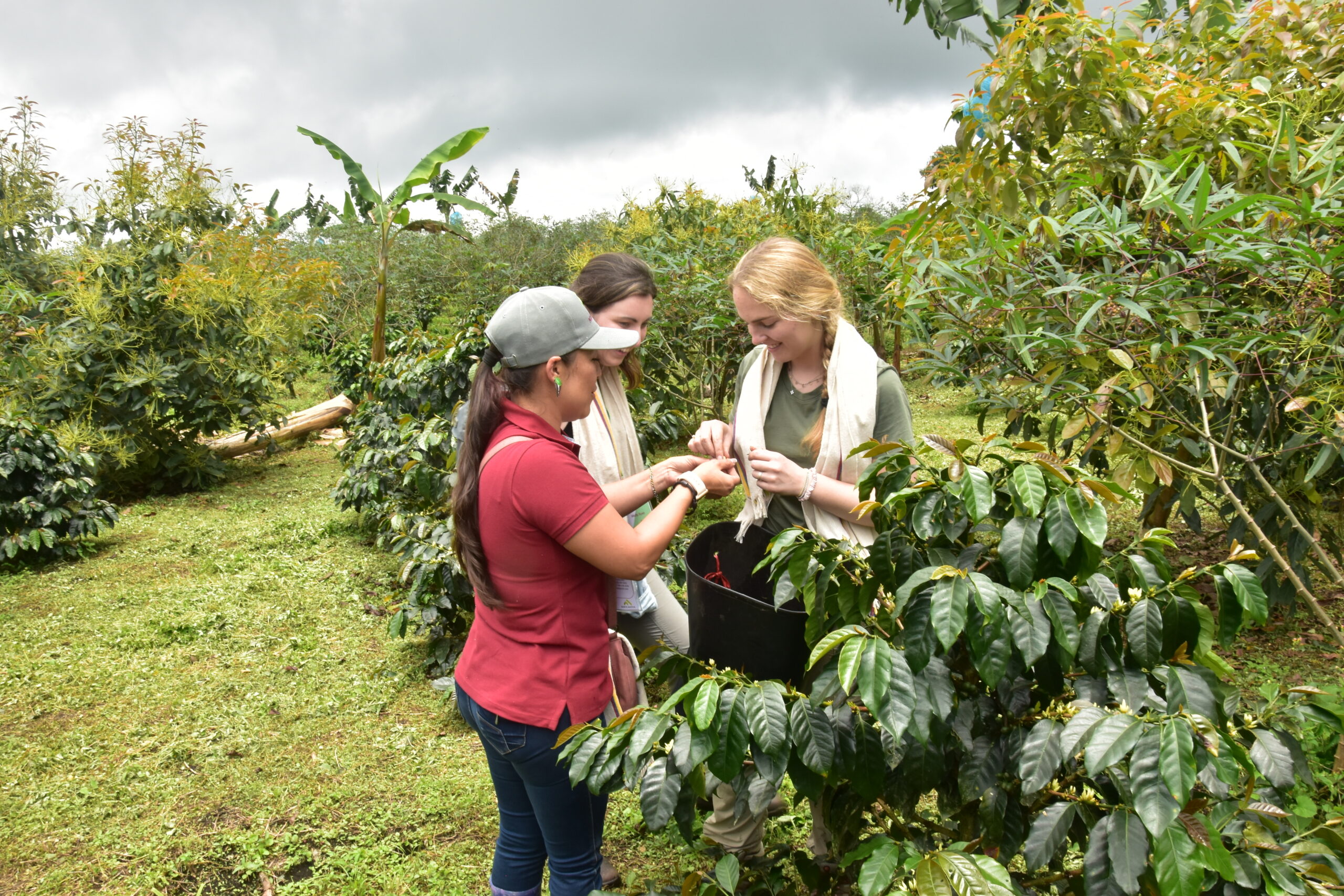
Arthur Eschbach

Arthur Eschbach
Fabiola Catalina Martinez leaned in close and declared, “I want to plant more than these seeds – I want to plant seeds of thought with these ideas.” Martinez is one of the cafeteros, or coffee growers, who are a part of Norte Nativa, an organization dedicated to the transformation of coffee farming in Líbano, Colombia.
The association wants to transition coffee farming practices toward sustainability by replanting native species, moving away from hybrid varieties, growing specialty coffee, and educating the next generation of coffee farmers. The association is made up of 10 farms, or fincas, that have banded together in the pursuit of these goals.
In March 2023, I traveled to Líbano with a group of graduate students from the Middlebury Institute of International Studies for an experiential learning trip. There we learned about Norte Nativa’s specialty coffee practices and the challenges with regulations keeping the fledgling sustainable industry from taking off.
The process of growing specialty coffee lies in multiple stages of production, in which these farmers incorporate sustainable practices. From planting to growing, fermenting to drying, and eventually to roasting, each step plays an important role in the quality of the beans.
Norte Nativa is unique in that each finca naturally specializes in different sustainable or specialty practices, and then shares them with each other as a community. The finca of Alexander and María del Pilar Naranjo plants cash crops, such as plantains, corn, beans, and cassava, in between coffee plant cycles for a more economically sustainable transition to specialty coffee.
Alejandro Franco, the president of Norte Nativa, specializes in the fermentation of harvested coffee cherries, a crucial step for the natural process of specialty coffee. He also uses seedling wraps made from seaweed, a more sustainable option than the typical plastic found on other farms, which allow for the root to easily grow once planted. His finca also practices trimming instead of cutting coffee plants as a natural process to stress them for more production, while keeping a high quality of flavor.
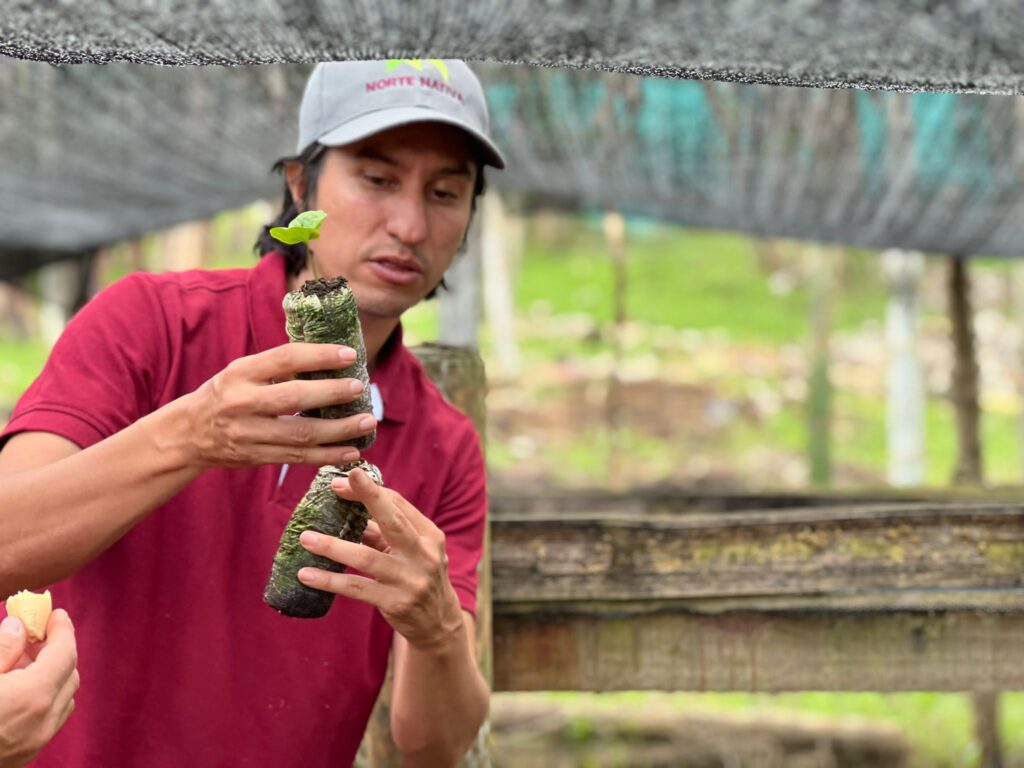
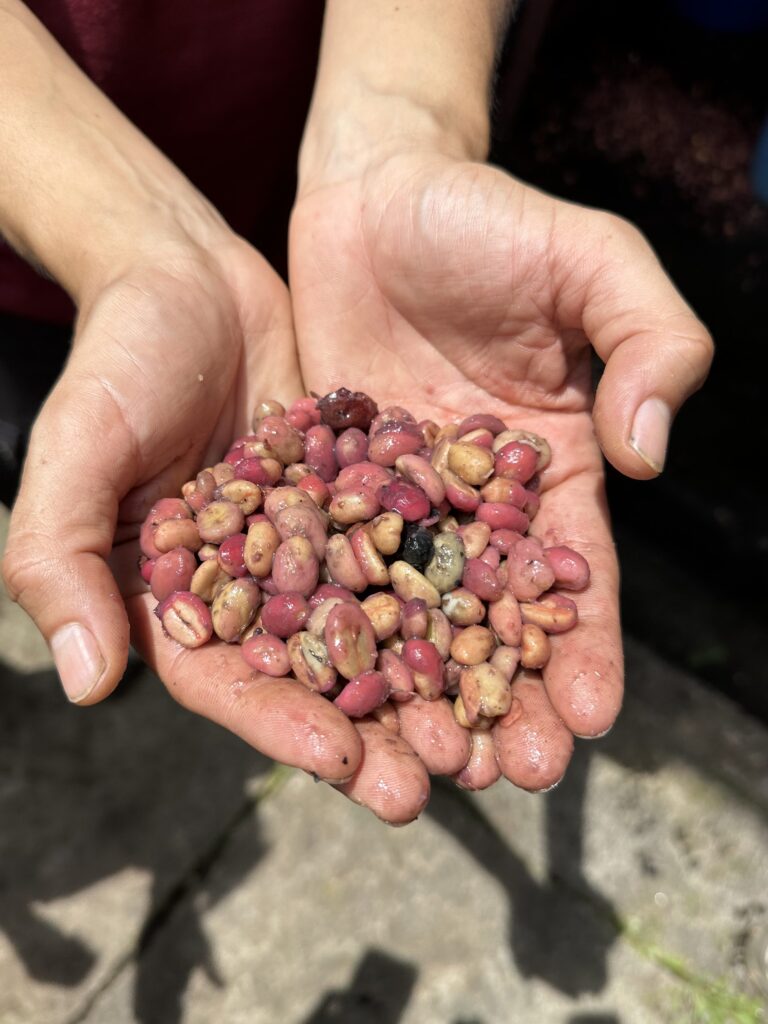
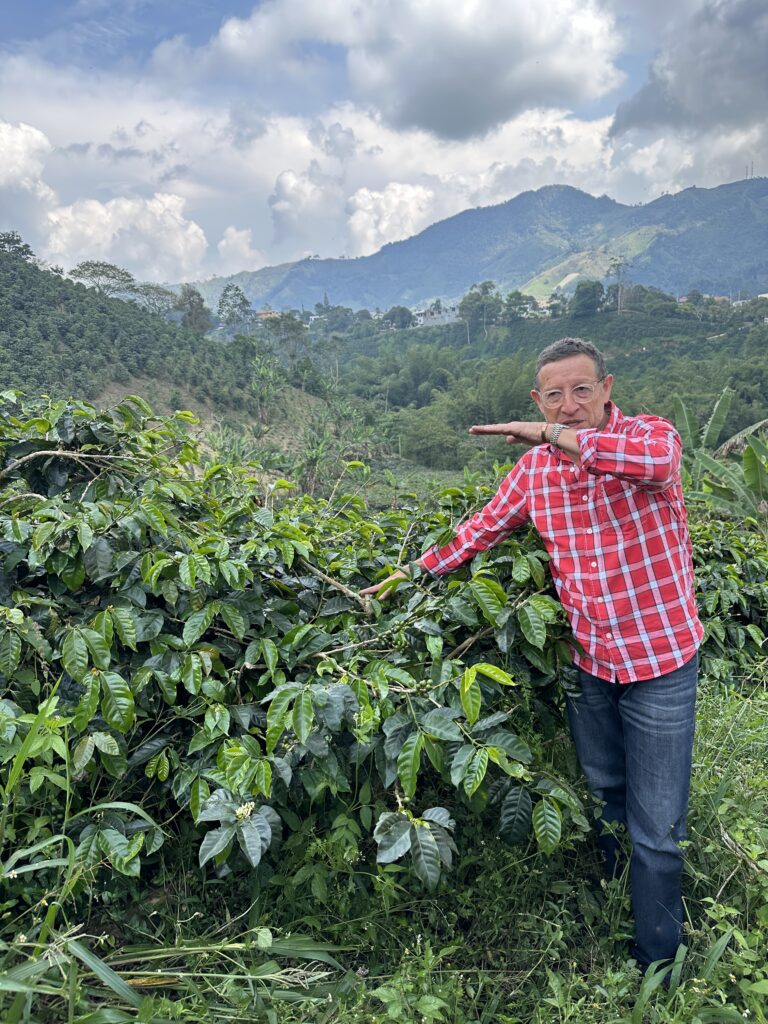
The coffee industry of Líbano in the Tolima region is regulated by the Federación Nacional de Cafeteros de Colombia (FNC). This organization was created in 1927 when Colombian coffee growers joined together to work for their well-being as a union.
The Federación conducts several essential activities within the coffee space. They offer a permanent purchase guarantee to Colombian coffee growers at a base market price through a network of cooperative allies. The FNC also keeps the National Register of Coffee Exporters and establishes the requirements for registration of roasters, millers, and coffee factories in Colombia.
One of the key roles the FNC plays is conducting research and transferring technology to Colombian coffee growers. During our visit to Líbano, we visited the Federación’s R&D site called the National Coffee Research Center, or Cenicafé. Cenicafé promotes themselves as generating competitive, sustainable knowledge and technologies that are focused on increasing productivity, and profitability of the country’s coffee farming.
On our tour around the R&D site, we listened to a staff member describe their efforts to accomplish these goals. She explained that in 2022 the region experienced much higher precipitation, but it had little to no harmful effect on their plants due to genetic modification to withstand such extreme weather events. Cenicafé also uses genetic enhancement with the goal of making their coffee plants more resilient to diseases such as Coffee Leaf Rust. This helps generate more profit for the growers and for the community.
The FNC supplies a vast majority of the coffee plants in Colombia; as a result, most cafeteros currently use genetic modifications to generate more product and profit.
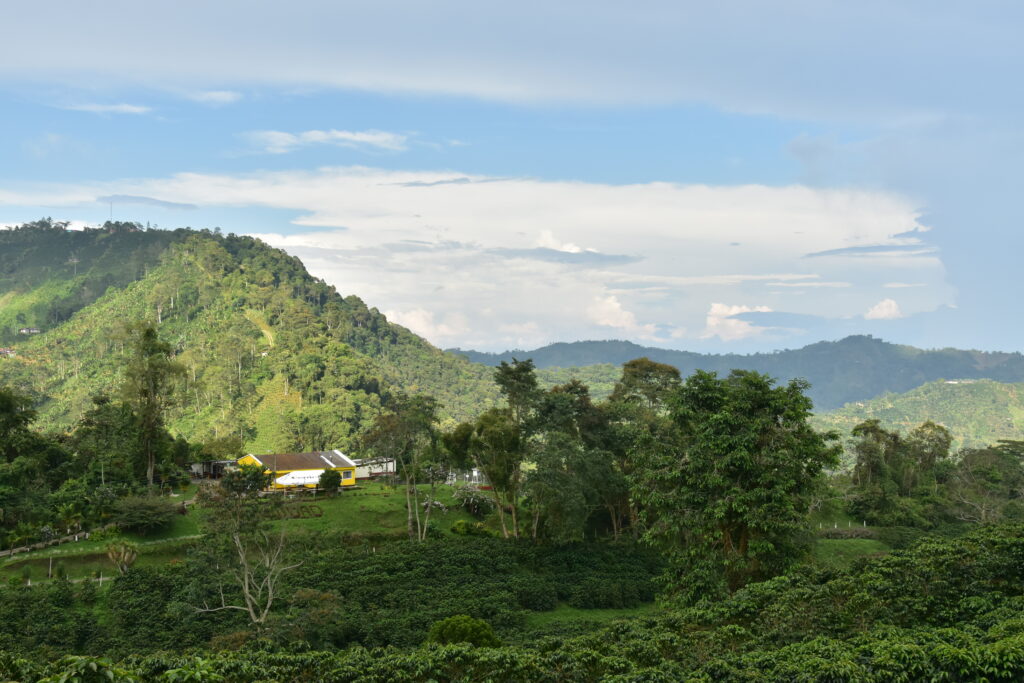
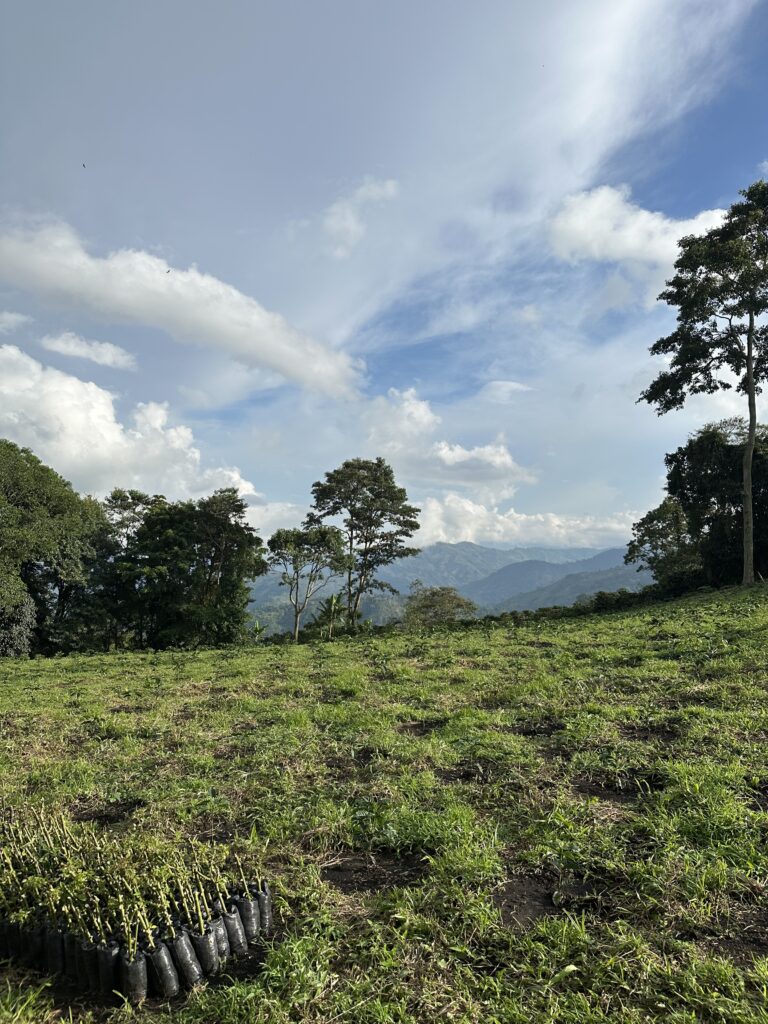
The cafeteros of Norte Nativa also have ties with Cenicafé and the FNC, although they may not always see eye-to-eye. In fact, all Colombian cafeteros need to have a license through the Federación in order to be recognized as coffee growers. But an important piece of Norte Nativa’s mission is to move away from the hybrids pictured above that the Federación supplies to farmers and instead invest in growing specialty coffee from natural coffee plants without genetic modification. Getting back to the organic roots of coffee farming.
This is where Norte Nativa and the Federación differ. Whereas Norte Nativa focuses on restoring historical and natural practices of regenerative agriculture, the FNC addresses the accessibility and livelihood of the larger Colombian farming community. We learned about this difference while sitting in on a coffee co-op meeting led by the FNC.
The FNC puts their resources into short-term solutions to enable small scale Colombian coffee farmers to make a living. These short-term methods, however, move away from sustainable regenerative agriculture practices, such as agroforestry, which advances soil fertility, biodiversity, and ecosystem health. Norte Nativa wants to grow coffee naturally without the need for chemicals or genetic alteration, therefore their members are putting resources into testing regenerative agriculture practices, such as composting for fertilizer. The trade-off is that these are longer-term investments that not all cafeteros have the resources to implement.
Franco further explained his organization’s differences from the Federación. “The FNC gives cafeteros seeds for free, but then farmers have to do things their way,” he said. These hybrids that Cenicafé modifies are more resilient to heat and pests, but the tradeoff is that they need more fertilizer. “And where do you get fertilizer from? The big companies,” Franco said.
Focusing on the ecology of the finca, planting more trees for shade-grown coffee, diversifying the plants, attracting more birds and animals – all of this leads to healthier soil. According to Franco, “The quality of coffee is based on the quality of the environment around [it].” And in order to cultivate a healthy, biodiverse ecosystem needed for quality plants to grow, Norte Nativa says it is transforming farming practices from their current unsustainable situation.
We met other cafeteros within Norte Nativa who offered further perspectives on how to achieve sustainable specialty coffee. Cafetero Monica Sierra López showed us her farm’s organic farming, drying processes – either naturally in the sun or using mechanical driers for a faster method – and a natural water filtration system that recycles water back into the river without contamination.
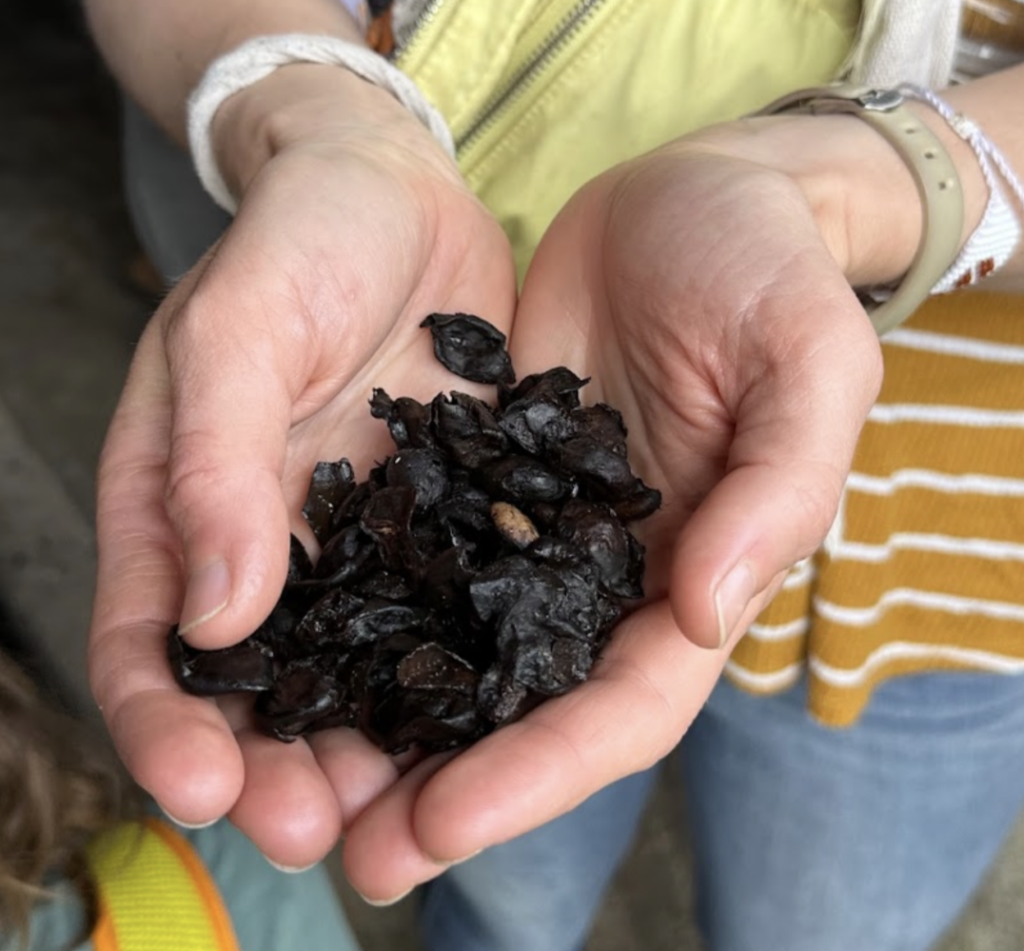
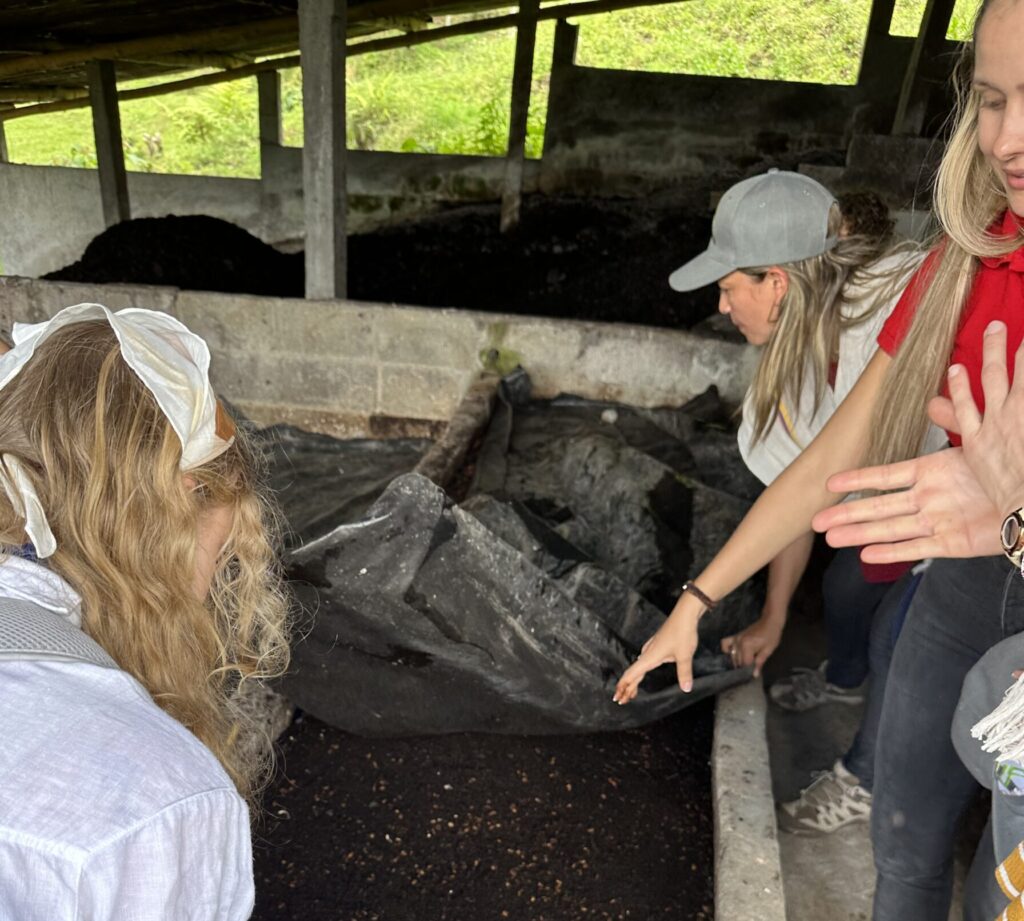
One of the organization’s founding members, Don Antonio Gonzalez, also emphasized the importance of a circular economy where everything is recycled through composting, creating a natural fertilizer. He explained that commercial fertilizers are not designed to account for the unique qualities of individual farms, so his finca is practicing precise, local fertilization for particular plants and soil at higher elevations.
Each of the cafeteros of Norte Nativa have their own visions, their own individual hopes and dreams for the future.
Jaime Gonzalez, who led the trip connecting Middlebury Institute students with Norte Nativa, has a vision to bridge the US and Colombia through education. According to Gonzalez, his plan is to “create a community of practice and knowledge-sharing through the fincas as study areas of conservation, restoration, and regenerative production for environmental education of students in Líbano and abroad.”
For Franco, the next steps are establishing a market for specialty coffee and eventually expanding the sustainable practices of Norte Nativa to other fincas in the Líbano region and beyond. To help this happen, Middlebury Institute graduate students under Lyuba Zarsky, Ph.D., are researching potential markets for Colombian specialty coffee.
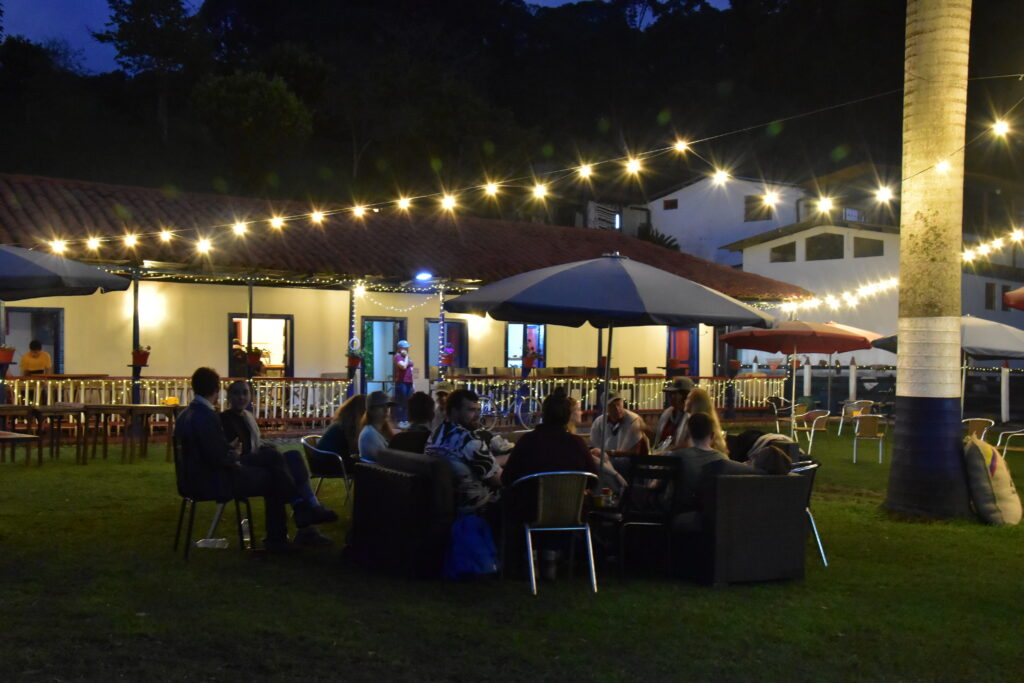
Under starry lights strung overhead, wrapped up in conversation during one of our evening gatherings, Martinez looked fervently at me and added, “I want to plant these seeds of thought. I want to plant them for the new generation.” Her vision is one of making good food – transitioning to good, healthy food processes for generations to come. “Yes coffee, too, but it’s more than that,” she said. Surrounded by a newly formed community, the lights illuminating the faces of coffee farmers and graduate students joined in conversation, the individual and collective visions of Norte Nativa were already blooming to life.
A special thanks to the cafeteros of Norte Nativa for hosting us, bringing us into their large family, and showing us around their fincas and homes in Líbano.